The British Thermal Unit (BTU) is the amount of heat required to raise one pound of water by one degree Fahrenheit at a predetermined temperature. In air conditioning, the term refers to BTU per hour.
In this article, we will unravel the mysteries of the term so that you can use it to your advantage.
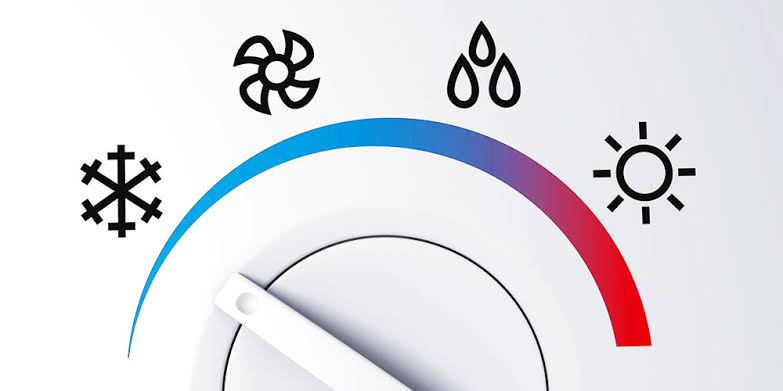
BTU History
It isn’t easy to ascertain the origins of BTU. We found the first mention of the definition on page 24 of Thomas Threadgold’s Warming and Ventilating of Public Buildings, published in 1824, although he doesn’t call it by name.
In the 1850s, the word unit appeared in publications such as Appleton’s Dictionary of Machines, Mechanics, Engine-Work, and Engineering and Rankine’s A Manual of the Steam Engine and Other Prime Movers. By the 1890s, engineers had widely accepted the term.
Today, the BTU is most often used in the steam generation, heating, and air conditioning industries to measure power. The modern term is BTU per hour, or BTUH. BTU is essentially a unit of energy equal to 1055J.
What Does BTU Mean For Your AC?
Since BTU is a measure of heat energy, it makes sense to use it for heaters and furnaces. Air conditioners cool, though, so what does heat output have to do with cooling?
The answer is in the way that an AC cools a room, which is heat transference.
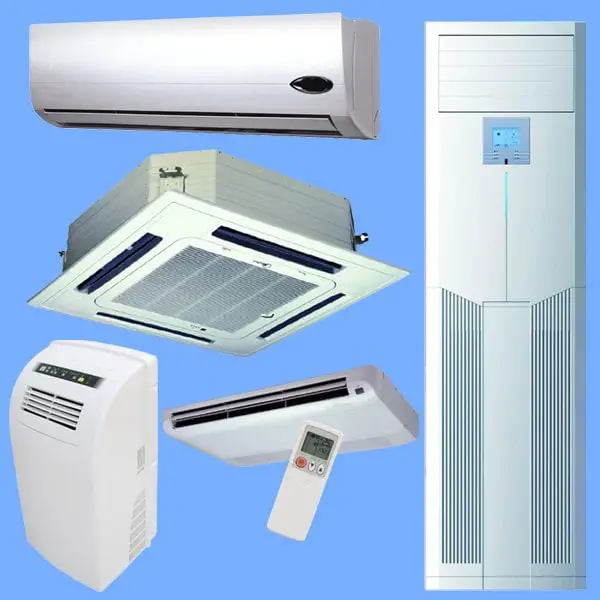
The AC system uses a refrigerant to absorb heat and transfer it outdoors. In this case, the BTU refers to how much heat energy a unit can remove from a room.
In both cases, the higher the BTU rating, the more potential the unit has to add or remove heat energy from a space. The typical BTU ranges on modern units are:
Larger units such as central air conditioning use tonnage to measure heat removal, but the conversion is simple: 1 AC ton equals 12,000 BTU. Thus a 24,000 BTU unit is the same as a 2 AC ton unit.
There’s so much stock put into the BTU of an AC unit because installing the wrong size unit will negatively impact its operation. An assembly that is too small will not handle the load, resulting in either not enough cooling or the compressor never turning off, leading to a premature breakdown. On the other hand, a BTU that is too high will cool the area too fast.
In this case, the compressor repeatedly stops as the space reaches the desired temperature and starts again once the thermostat kicks in. The constant stopping and starting of the compressor results in extra wear and tear. The AC does not remove excess moisture with the compressor shut down, resulting in an uncomfortably humid room.
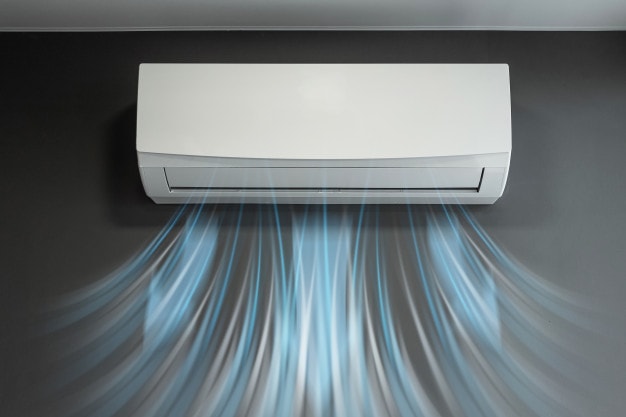
Why Do We Use British Thermal Units (BTU)?
Despite the name, BTU is more American than British. We could just as easily use standard energy measures such as Joules or Calories. Still, BTU makes more sense as it measures the amount of heat directly.
By using BTU for HVAC systems, we can compare the heating or cooling capacity of different installations on an equal basis across the board. We can then compare the energy content of the fuels we commonly use. In short, BTU is the most convenient unit of measure for heating or cooling systems.
How Many BTUs Do You Need?
The answer to this question is that the required BTUs are dependent on a lot of different factors. Some of these are:
- The size of the space
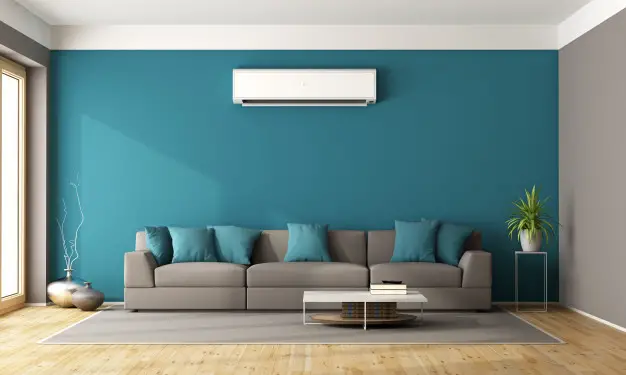
- The utilization of the space
- The number of people in the space at any time
- The height of the ceilings
- The quality of your insulation
- Location of the space
- The number, size, and type of windows
In short, there is no single option that fits everybody’s needs, hence the extensive range of different types and sizes of units on the market today. A qualified technician can help you determine the correct BTUs for your area.
How To Calculate BTUs
Calculating the required BTU is a little complicated as you need to take several factors into account, as explained before. To make things a little easier for you, we have included a BTU calculator that takes the guesswork out. An HVAC technician can help if you’re still unsure.
BTU Input vs BTU Output – Efficiency Explained
Efficiency is a vital factor to take into consideration when heating or cooling your home. The reason for this is that installations with a low efficiency rating will increase your heating or cooling bill, and high efficiency will lower your bills.
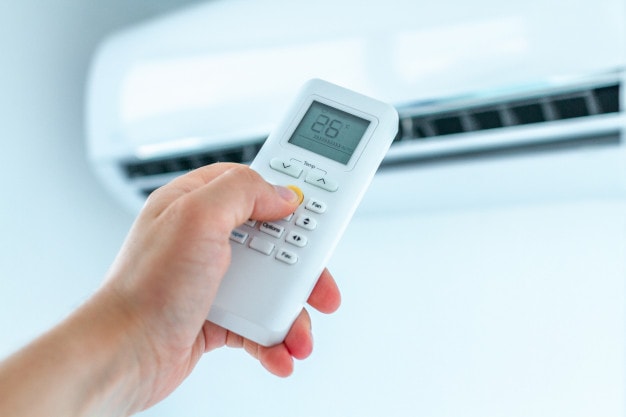
A high-efficiency unit’s lower running costs will outweigh the extra money for the initial purchase and installation in the long run. Here are a few of the HVAC terms relating to efficiency that you should know and understand. Understanding these terms makes searching for an energy-efficient unit easier.
- SEER rating: SEER stands for Seasonal Energy Efficiency Ratio. This rating denotes the efficiency of a cooling unit. Ratings in the U.S. vary between 13 and 22. A higher rating is a more efficient unit.
- AFUE: Annual Fuel Utilization Efficiency, expressed as a percentage, relates to boilers and furnaces. It’s expressed as output/input x 100%. The minimum AFUE is 80%, but some high-efficiency units achieve up to 97%.
- HSPF: Heating Seasonal Performance Factor tells us the efficiency of a heat pump in heating mode. The industry minimum is 7.70 HSPF. A good model’s rating should be between 8.0 and 9.5.
BTU Input-Output Conversion Chart
To help calculate the amount of fuel that your installation uses, we have provided a BTU input-output conversion chart below.
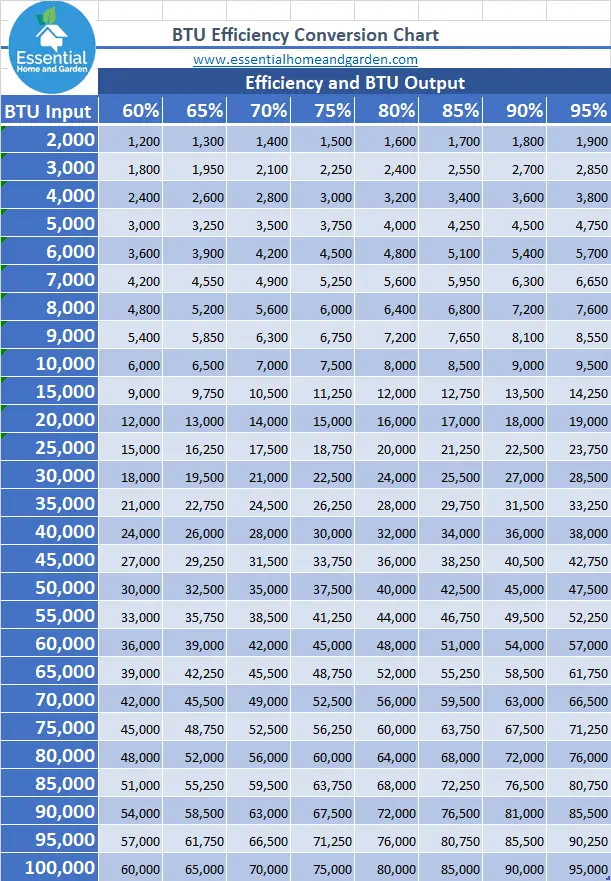
Aspects to Consider When Calculating BTUs for Your Space
Here are some things to keep in mind when considering how many BTUs you need.
Climate
The climate has a direct influence on the amount of cooling or heating required. The more extreme the outside temperatures are, the more energy you need to bring the space to a comfortable temperature. An installation suitable for a milder climate won’t be ideal for environments requiring more heating or cooling.
Room Height
The calculation of BTU considers volume, not area. So the height of your ceilings influences the total BTUs needed for your space. A higher ceiling means that you need a larger installation.
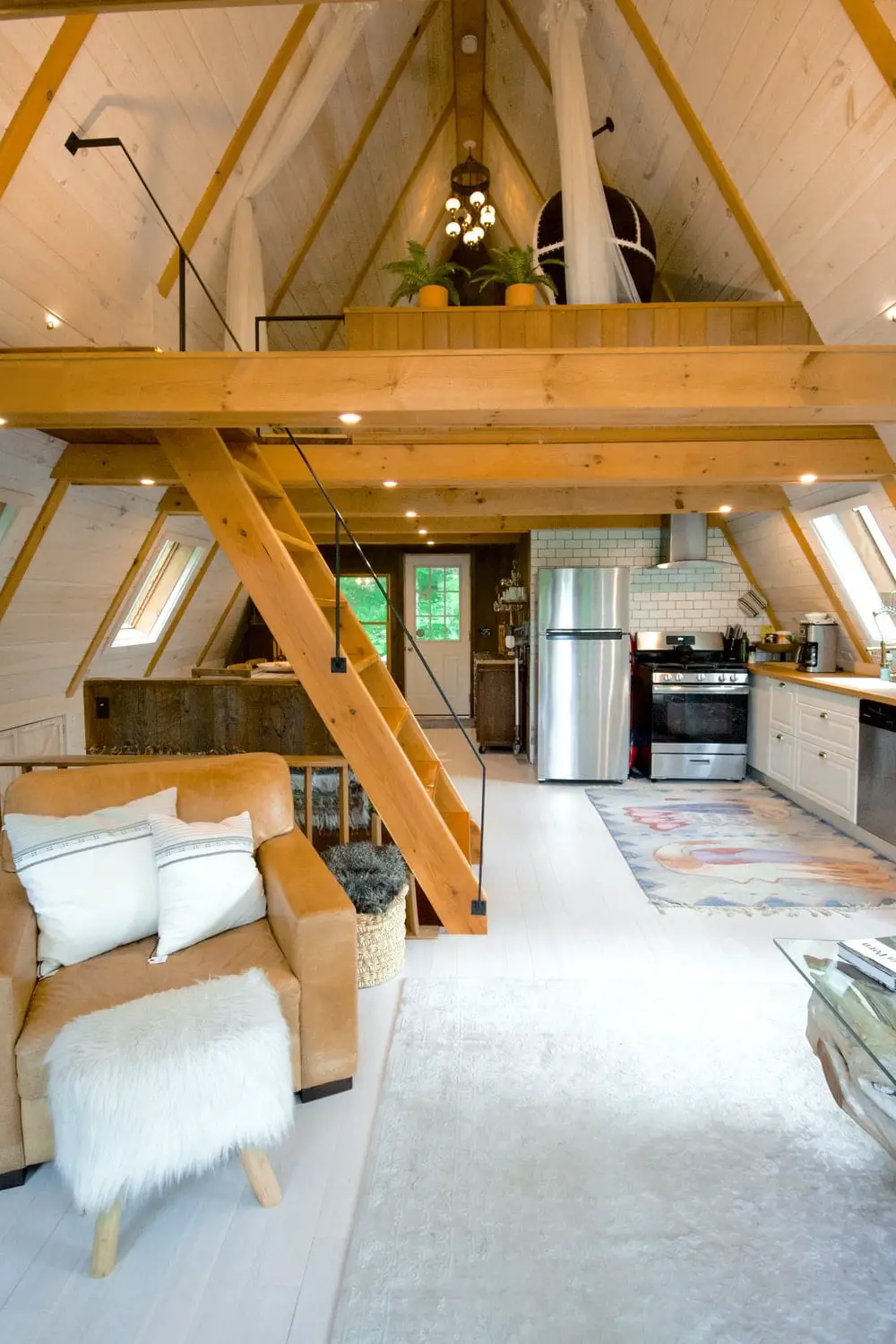
Insulation
A better-insulated area maintains a more constant temperature, meaning that your HVAC system doesn’t need to work as hard. The quality and type of insulation and even building materials have a significant impact on your HVAC needs. The better insulation your space has, the lower your HVAC requirements are.
Windows
Like insulation, windows have an impact on HVAC. The size, type, and the number of windows directly affect HVAC performance. For example, you need to add an extra 20% onto your BTU calculation for large windows, but deduct 10% for double glazing. The quality and condition of your window seals also play a role, as poorly sealed windows lower the insulation’s efficiency.
Occupancy
Both occupancy and utilization of a room also influence the BTU calculation. The human body generates heat, so a room with high occupancy levels needs more cooling or less heating. Equally, a room with many appliances that create heat in their operation needs more cooling or less heating. For these reasons, the technician must take both occupancy and utilization into account.
Conclusion
There are many factors involved in choosing an HVAC system, whether for a first-time installation or replacement. Each element is equally important.
We have covered the most critical aspects relating to the system’s BTUs, but talking to a qualified technician is always a good option, especially now that you have a better understanding of the terms.
You can save time and expense by utilizing your newfound knowledge to help the technician choose the installation that is both right for you and energy efficient.
People Also Ask
We have tried to explain as much as possible about the concept of BTUs. Nevertheless, we also know that the intelligent layman always has additional questions. We have answered a few of the most often asked questions below, with the intent to provide practical application without the technical jargon.
Neither. It is essential to install the HVAC system that most closely matches your requirements. A system that doesn’t have enough power runs permanently at peak load, resulting in improper cooling or heating, using more fuel, and causing unnecessary wear and tear.
Apart from the higher initial cost, a system with too much power continually stops and starts, resulting in excessive wear and tear and lower efficiency.
A good starting point for determining the BTU for a replacement system is to check the BTU of the old one. Use the tally plate on the old unit to find the BTU. Most manufacturers include this information in their model number (M/N) as a three-digit number after the first five digits.
If the M/N is*****024, the unit is 24,000 BTU. Some tally plates have the BTU rating in direct sight. If you are unsure, then search the M/N with the manufacturer.
A higher BTU does not necessarily mean higher gas usage. Although BTU does play a small part in gas usage, the unit’s efficiency and the type and settings on your thermostat have more effect.
BTU only indicates a heating or cooling system’s potential, so a higher BTU doesn’t always mean that your HVAC system uses more electricity. Efficiency ratings are a better indication of electricity usage. Thermostat settings also influence the efficiency of a unit.
If the BTU is too high, the system cools the area too quickly. The compressor cuts out at the desired temperature until the thermostat triggers it again. Except for the wear and tear on the electrical and mechanical components resulting from continually stopping and starting, it also impacts air conditioning’s other critical aspect.
With the compressor stopped, the system does not remove excess moisture from the space; the resultant high humidity is uncomfortable.
Higher BTUs means faster cooling, but not better. Cooling an area too quickly results in high humidity. The constant stopping and starting of the compressor is also not healthy for the system. The aim of installing an AC in your space is to afford maximum comfort, match the system properly to your area to achieve that end.
